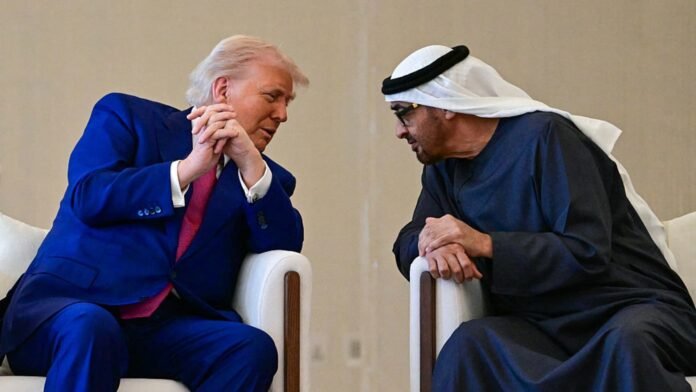The U.S.-UAE AI alliance is reshaping the global technology race. America leads in advanced chipmaking, while the UAE offers vast energy reserves ideal for data centers. Together, they’re fusing resources to gain dominance in artificial intelligence.
President Donald Trump’s visit to Abu Dhabi in May marked a turning point. The UAE welcomed him with major investment pledges. Over $200 billion in tech and AI deals were signed. This brings total Gulf investments linked to the U.S. to more than $2 trillion.
Among the landmark projects is Stargate UAE, a $500 billion AI campus launching in 2026. Built through a partnership between OpenAI, Oracle, Nvidia, Cisco, SoftBank, and UAE’s MGX, it will begin with a 200-megawatt AI cluster in Abu Dhabi next year.
This campus will grant the UAE access to Nvidia’s most advanced chips. It also signals a broader strategy: to position the UAE as a global AI powerhouse. Officials hope this will reduce dependence on oil, expand economic influence, and increase geopolitical leverage.
For the U.S., the stakes are equally high. Trump’s administration aims to ensure American firms lead the AI arms race against China. His policy changes include plans to roll back the Biden-era “AI diffusion rule.” That regulation had restricted exports of sensitive AI chips, even to allied nations.
Critics worry that easing those rules could expose key technologies to global rivals. However, the Trump administration believes deeper cooperation with trusted allies like the UAE will strengthen, not weaken, U.S. tech supremacy.
AI analysts believe the alliance is strategic and timely. As U.S. data center capacity faces energy limits, the Gulf’s low-cost energy emerges as a crucial advantage. This makes the region a natural AI hub for global development.
The U.S.-UAE AI alliance is more than a commercial venture. It’s a geopolitical move with deep implications. As billions pour into joint innovation, the world watches a new axis of tech leadership take shape one powered by chips, energy, and ambition.


